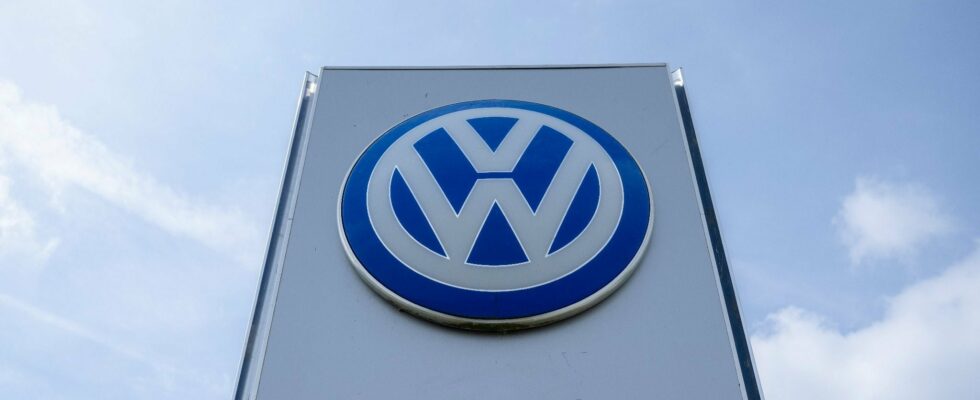The announcement had the effect of a cataclysm across the Rhine. For the first time in its existence, the powerful car manufacturer Volkswagen is considering, through its boss Oliver Blume, to proceed with factory closures in Germany. The group is also not ruling out ending historic employment protection agreements in the country, which run until 2029. Enough to open the way to possible compulsory layoffs. A shock on a par with the resounding Dieselgate scandal, whose trial opens at the beginning of September.
Cornered, Volkswagen “must now act decisively,” Oliver Blume said in an alarmist note released internally on September 2. Weighed down by the decline in its sales in China – the historical cash cow of German manufacturers –, Chinese competition in its other markets and its own wanderings in the electric sector, Volkswagen is reportedly looking for four to five billion euros in additional savings, according to the German press. And this, while the group had already negotiated an initial savings plan of ten billion euros with employee representatives at the end of last year.
Berlin-based independent analyst Matthias Schmidt believes that “cuts must be made” at Volkswagen because of the under-utilization of its factories, a problem that he believes concerns the entire European automobile industry.
L’Express: Volkswagen is considering closing factories in Germany for the first time in its history. Is the carmaker in such a difficult situation that it is forced to resort to such an extreme measure?
Matthias Schmidt: Rather, in my opinion, it reflects the fact that Volkswagen has not done enough in the past. Between an automobile market that has not returned to its pre-Covid levels in Western Europe and new entrants fighting for a share of what is left of this pie, all of Europe’s production capacities are currently underutilized.
In this context, Stellantis, for example, has adopted a new approach consisting of producing models of the Chinese Leapmotors in its Polish factories. But Volkswagen assured me that it is not ready to produce vehicles for its Chinese partners in Europe. Its production tool therefore now resembles a little the airports during the Covid period, with closed or half-empty terminals. That said, the battle is going to be tough for Volkswagen, as unions have made it difficult to cut jobs in the past.
Is this decision linked to the difficulties Volkswagen is experiencing on the Chinese market?
This is a European problem. All vehicles sold in China are produced locally. Volkswagen’s Chinese operations do not involve German plants. The European market is simply operating below its real capacity and cuts must be made. Furthermore, Volkswagen has always intended to prepare for the transition to electric by using natural attrition to reduce its workforce, i.e. by not replacing employees who retire. However, the transition is happening faster than expected, hence this announcement.
Do the delays in the launch of new electric vehicles, such as the electric version of the Golf and the Trinity program, also explain Volkswagen’s decision?
Not at all. Electric car sales represent 16% of the new car market in Western Europe and are stagnating this year. The fact that Volkswagen has not been exposed to them has probably preserved it so far. A faster transition to electric cars, which by their nature require fewer employees for assembly than a combustion engine car, would have had an even greater impact on the workforce.
More broadly, are Volkswagen’s difficulties with electric cars a sign that the group underestimated the cost of producing competitive vehicles?
I don’t think Volkswagen is in trouble at this point. Now that it has overcome the initial difficulties, the group is producing decent models thanks to its MEB platform. [NDLR : il s’agit d’un ensemble de pièces qui forment les structures des véhicules]. Models produced from its second platform are also finally starting to arrive despite some bugs and a three-year delay.
The main problem for manufacturers like Volkswagen is that the software part is handled by third parties. However, each change must go through these equipment manufacturers and given the number of companies involved for a single car, the slightest request can quickly take a long time. Conversely, manufacturers like Tesla, Rivian and a good part of the Chinese players start from scratch. From the beginning, they made sure to make the different types of computer languages communicate on board the vehicle and are able to modify them themselves.
Is the Volkswagen case symptomatic of the ills of the German automobile industry? Should the country expect a massive reduction in the industrial footprint of manufacturers and equipment suppliers?
Yes, Germany is very strongly exposed to the transition to electric vehicles due to the high number of German OEMs specializing in components for combustion engines such as Bosch, Continental or ZF, to name a few. This explains the growing agitation around the ban on combustion cars in 2035. But the key, however, lies in the transition and reskilling of the existing workforce.
What are the consequences for the Mittelstand, this vast network of companies which has until now made Germany strong?
What the Mittelstand needs is a stable environment. Oliver Blume pointed out that Germany is losing its competitiveness internationally. The message was directly addressed to Berlin. Germany needs a more competitive energy supply, which will not happen overnight since the market is engaged in its transition to renewables to get rid of Russian gas and coal. European integration on the energy front could help in this regard.
Furthermore, the Mittelstand needs guarantees from Brussels and Berlin on the trajectory of the automobile industry. Delaying the abandonment of combustion engines may help them in the short term. But in the long term, the decision will haunt them all the more since others will have specialized largely in electric by then.
.
